#black man representation saves lives
Text
I'm so damn tired and gay, can we just get a renewal announcement from Netflix already? I want to watch my wonderful sapphic cheesy vampire show in peace. But instead my joy at having this representation and well-written and acted at that, is colored by massive anxiety that Netflix will not renew it. This show has cut all the corners, it is costing Netflix basically nothing. It's such a damn good show.
#teenage Bounty Hunters ptsd is attacking me today#i bawled my eyes out after we worked so damn hard for the renewal and it was cancelled anyway#i hate supplicating networks every fucking time something with good representation exists#like sapphic yes#but the representation is so much more!#calliope burns#calliope x juliette#juliette fairmont#juliette x calliope#sapphic representation Saves Lives#lesbian representation Saves Lives#black woman representation saves lives#black lesbian representation saves lives#first kill#black man representation saves lives#representation Saves Lives#lgbtq#first kill netflix#signal boost#renew first kill
26 notes
·
View notes
Text
harvest day - l.m.
secret admirer!Liam x Luceran!reader.
part of my Valentine’s Day celly! 💕
words: 932
🏷: reader is feminine and has longish hair (can be tied), but no pronouns used. I am once again making random stuff up about Navarrian cultures. featuring my farm-boy Sawyer headcanon lmao (Luceras doesn’t have one major city on the map in the book. It’s all farmland, and you cannot convince me otherwise.)
You nearly crush it under your boot in your hurry to get to class, stepping back at the last second to pick it up.
A tiny dragon carved from wood -- your dragon, complete with his horns and a tiny spiked tail. You run your fingers over the wood — it’s been sanded, perfectly smooth against your skin. The level of detail is incredible. This must have taken hours.
“You’re going to be late, humble one.”
Right. You tuck it into the pocket of your jacket, locking your door behind you and jogging down the hall.
You make it just in time, apologizing your way down the row, stepping around people’s feet carefully until you’ve made it to your friends. You settle between Rhiannon and Sawyer, thanking them for saving you a seat. “Overslept,” you explain, digging in your bag for your notebook, which you had nearly forgotten to pack.
You remove your flight jacket, taking the tiny dragon from your pocket and setting it on the desk beside your pen.
“Whoa, sick! Who made that?” Sawyer asks.
“I don’t know. I just found it outside my door. It looks just like him, though. Even got the horns right.”
“It is a very good representation of me,” Cruith appraises. “Though I have never once been that small.”
“That's awesome. Maybe they’re like, a wood-wielder or something,” Ridoc suggests, leaning over to examine it.
“I’m pretty sure that signet doesn’t exist,” Rhiannon says dryly.
“If he can do all that with metal, then it's entirely possible someone could do it with wood,” Ridoc defends.
“That’s what she said,” Sawyer says quietly, trying not to laugh.
Ridoc grins. “I’m rubbing off on you, man.”
You snort. “Now that's what she said.”
“Focus,” Rhiannon scolds lightly, ever the responsible squad leader, her eyes not having left the chalkboard this whole time.
“Yes, mom,” the three of you chorus softly, turning your attention back to the professor.
Violet looks like she has something to say, but she remains quiet.
---------------------------------------------------
“Mail call,” Rhiannon announces, distributing opened letters to each of you.
Your heart drops as soon as you start to read yours.
“You okay?”
“Yeah, I just didn’t realize the date. It’s Harvest Day on Wednesday. Last year I was just too busy trying to stay alive to think about it, but…”
Sawyer winces, understanding. “I wish I could be there too. I swear when I graduate, I’m gonna use all my leave every year to help them.”
“I’m so lost,” Ridoc says, looking between you.
You laugh, explaining. “Everyone spends the day — the week, really — helping their neighbors harvest their crops, and there’s always a feast at the end with what we’ve grown.”
“Gods, the food. My family doesn’t come from much, but that was always the one day a year I felt like we were rich,” Sawyer admits.
You sigh in agreement. “It’s gonna be so weird wearing black all day instead of fall colors.”
“That is the most Luceran thing I’ve ever heard,” Ridoc says. “Sometimes I forget you guys are all farmers.”
“It’s only our single most important holiday,” you laugh. “And we’re not all farmers. Two of us are dragon riders.”
Sawyer grins at you, putting a hand up for a high five. “Damn right we are.”
---------------------------------------------------
Everyone’s eyes widen at the silky orange ribbon tying your hair back. You beam, turning your head to show it off. “Courtesy of the wood-wielder. I have no idea where they got it.”
Your joy is short-lived.
“Precisely what is that, cadet?” Dain asks sharply, and your face falls. There’s only one thing he can be taking issue with, the only spot of color in the sea of black making up your formation.
“It’s a Luceran tradition,” someone says for you — but not Sawyer or any of your friends. “Today is Harvest Day.”
You turn toward the voice, seeing Liam behind you, his eyes locked with Dain’s as if he’s daring the wingleader to argue with him. How does he know about the holiday? Had he overheard your conversation with your squad earlier?
“I expect it to be gone tomorrow,” Dain concedes. “You’re all dismissed.”
You breathe a sigh of relief as everyone files out of the hall.
“Liam?” You ask softly, and he stops, turning toward you. “Thank you.”
Then you see the small block of wood in his hand, the rough shape of another dragon etched into it. “It was you,” you whisper, stunned.
He laughs. “What?”
You reach into your pocket, producing the carving of Cruith. “You made this, right? Were you the one who wrote those physics notes for me when I was in the infirmary, too?”
He smiles. “Yeah. That was all me.”
Your heart flutters with hope. “Why?”
“Because I was too nervous to say it, but I really like you.”
You blink. Liam, the one who isn’t scared of anything, was nervous to talk to you? And he has a crush on you? You’ve always found him attractive, but you had never thought this a possibility.
“Say something,” Cruith prods, sounding amused.
You finally form words. “Do you want to go into town with me this weekend?”
He blushes, scratching the back of his neck. “I would really like that.”
“Hey, lovebirds, are you coming to breakfast, or what?” Ridoc calls. “Some of us are starving over here!”
You laugh, a sound Liam will never tire of. “Just a minute!” You yell back.
You touch your fingertips to the soft silk, looking up at him. “Thank you, Liam. It really means a lot to me.”
He smiles. “Of course, sweetheart.”
162 notes
·
View notes
Text
Something that I’ve noticed about the hype surrounding Hobie after ATSV is that no one seems to talk about how Hobie is punk in Britain; a place with a very active punk scene yes, but in the punk scene in the past, being any other race than white was considered “posing” (hence songs from black alternative artists like Young Gifted Black in Leather and I am a Poseur). And now in just a few years time that entire script has been flipped on it’s head, with Wendell and Wild and then with Hobie Brown.
He is not just a spiderman who happens to be punk! He is a black spiderman who embodies punk, he IS punk! He stands up to the system, watches out for his friends and does everything according to his own anarchistic ideal and he ROCKS! He crushes it!
So many people will have a first (or first deeper, extended) impression of punk culture through this movie, and they will see Hobie Fucking Brown be an amazing Spider-Man and be punk and he is just such a great representation of punk culture while also saying “fuck you this is dumb” while saving lives!
Idk where I am going with this but it made me very happy and Hobie is amazing!
#across the spider verse spoilers#across the spiderverse#atsv hobie#hobie brown#punk#punk culture#character analysis#sortaaa#spider punk#listen I just have a lot of feeling about this#and the movie#but this specifically#I just love Hobie brown so much#I wanna have some tea with him#I’ll even drink earl grey please
458 notes
·
View notes
Text
The Disability Coding Of Aphelios
Hey everyone! Today I thought I'd write a little post about my comfort character Aphelios; The Weapon Of The Faithful from League Of Legends!

Specifically I wanted to talk about the disability coding of Aphelios. For those who don't know; coding means the character is written to be an allegory for a life experience. It's about the closest you can get to canon without being necessarily canon. Many stories in magical fantasy universes use this technique. The most common reasons are for hiding from censorship and backlash, and creativity. I personally find coding way more interesting because of all the ways people can think to use magic as an allegory. But I also understand the importance of canon representation. Luckily, Aphelios does both!
So let's start with base main universe Runeterra Aphelios. To be able to talk to his sister and access her weapons he has to drink a special moon flower poison. This poison causes him immense constant pain. It also renders him mute. Obviously he isn't technically disabled. He can choose to not drink the flower (though that would be a dumb decision). But the fact he *must* drink it to save his people and it leaves him to chronic pain and muteness to the point of becoming numb to the world. That screams chronic illness's that cause pain.
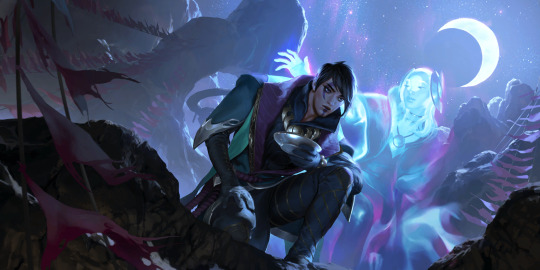
Now many League lore nerds are always quick to do an "uhm actually" when you call Aphelios mute. But they're not thinking of the coding of it. Like I said earlier; fantasy stories using coding is very common for many types of minorities, not just disabled people.
My favorite example of disability coding is Hunter from The Owl House. Hunter lives in a world full of witches but he has no magic. He struggles at times but is able to find a way to navigate the world. He uses his palisman as a disability aid and makes do.
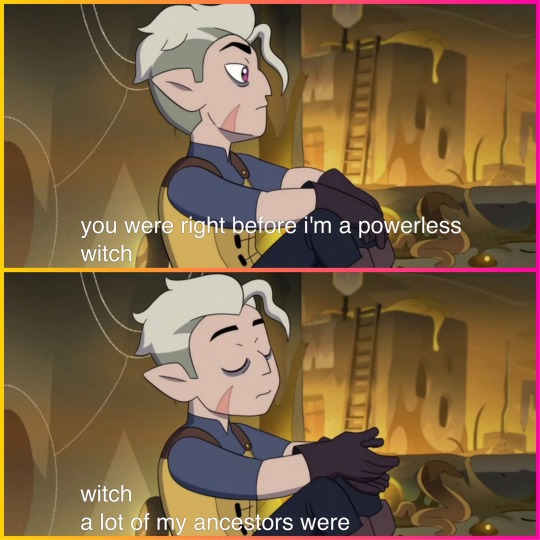
Now I'd understand some people not seeing this or just denying it. But what they did with HEARTSTEEL Aphelios basically confirms to me the disability coding was intentional (or at the very least something they're sticking with).
HEARTSTEEL is a boy band in the League musicverse. If there was ever a time to make Aphelios speak, it would be a boy band that sings. But no they didn't do that. In fact they understood the music verse is a more grounded universe (hinted to be our own even) so they made him CANONICALLY disabled.
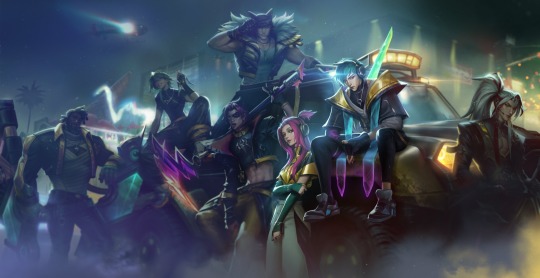
When Aphelios was younger he had nodes in his vocal cords and they had to be surgically removed. Aphelios never fully recovered and lost his singing voice and the majority of his normal voice. He can't really speak above a whisper. In interviews he whispers to his sister Alune and she answers for him. (Someone teach this poor man sign language).

Another thing I find cool about HEARTSTEEL Aphelios is how he copes. Aphelios is the lyricist of the band. Kayn and Sett's verses are very in character for themselves but K'sante's fits Aphelios as a character way better.
"They wanna kiss me long good night with a rose
Hoping that the Eiffel falls, of course
You don't understand the life we chose
(On life support, life goes)
I need my silence, my privacy so I can heal
And even rockstars got feelings that they feel
In reality, this just repeats like a drill
Always"
This verse shows Aphelios struggle with being disabled. He didn't choose this life, but life goes on. The best part of this verse is that his friends are his voice. The fact K'sante sung his lyrics is very powerful. Shown in the music video, his friends metaphorically (and literally) saved him from drowning.
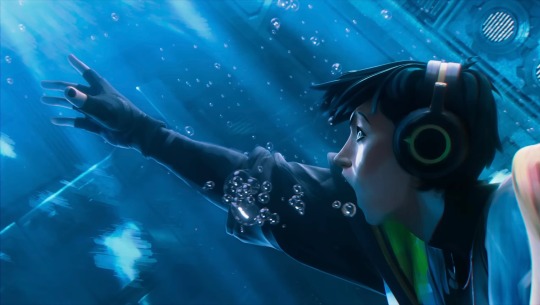
I can speak from experience that friends are very important. They really can help you through the toughest times and save you from drowning.
(I also feel it is important to mention; that while it's beautiful that someone sung Apehlios thoughts for him. It is suspicious they chose the ONE black champion in the band. The other two who sang solo verses got to have screen time all to themselves for their verses. K'sante isn't present at all for his verse and it is instead Aphelios and Yone.)
Anyway that was a little infodump about Aphelios and why I love his disability coding. I really appreciate that Riot are keeping him mute in all universes so far. (My worst fear is a legendary skin where he speaks.) Riot has stated that while champions are different people with different life experiences in the alternate universes that the champions will keep their core identities. They were mainly referring to LGBTQ champs in this statement, but disability is also a major part of identity. I'm sure it applies here too. Sona has also stayed mute in all universes as far as I know (she just uses aids like telepathy and text to speech).

Anyway see you all later on the rift where I will OTP HEARTSTEEL Aphelios and maybe some Sett support because I'm gay.
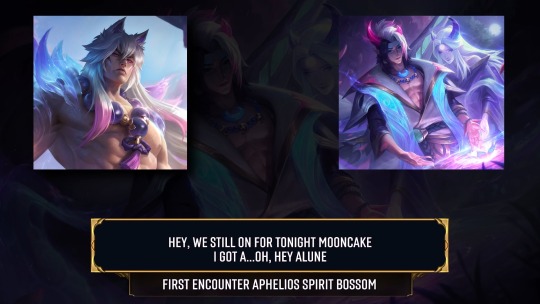
#Aphelios#HEARTSTEEL#Settphel#Kinda?#Disabled#Aphelios The Weapon Of The Faithful#Aphelios League Of Legends#League Of Legends#LoL#Legends Of Runeterra#LOR
274 notes
·
View notes
Text
Seeing as it's Black History Month, I'm gonna take a break from your regularly scheduled girlblogging to be a film nerd and beg every single person reading this post to go and watch Within Our Gates (1920).
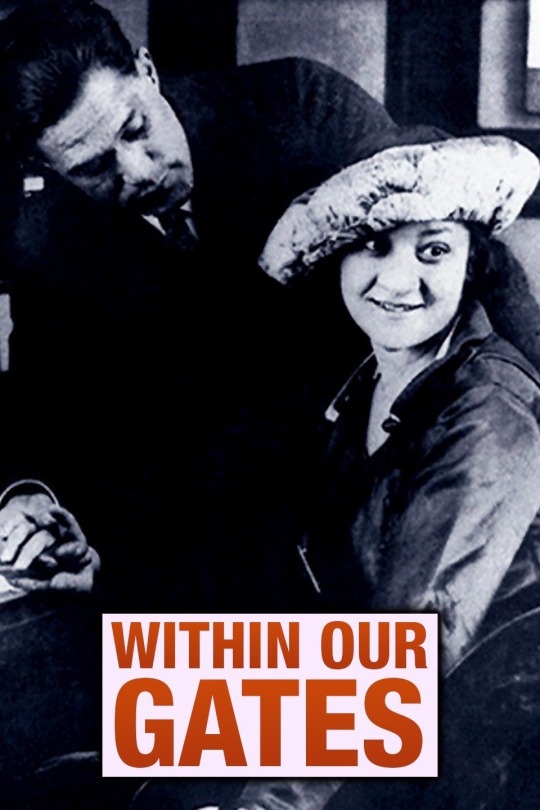
Within Our Gates is a feature-length silent film written and directed by black filmmaker Oscar Micheaux and it is a miracle that we have it today. The film was believed to be lost for years until a SINGLE surviving print was found in Spain, translated back into English, and recut to match the original as closely as possible. (This is actually not uncommon in the realm of old film a lot of lost films get found in random closets but ANYWAY.) The film tells the story of Sylvia, a southern schoolteacher who travels up north to raise money to keep her school open. It explores how her life and family have been affected by racism, abuse, and sexual violence, as she falls in love, works to save her school, and grapples with her place as a black woman in the antebellum south. If that's not enough to get you interested, the film is also kinda batshit. There are shootouts! Affairs! Someone gets hit by a car! It's wild and dramatic and incredibly engaging.
You've heard of Birth of a Nation, right? Maybe you've even seen it. That insanely racist piece of film history premiered in 1915. Oftentimes people will defend D.W. Griffith and the film itself as being "a product of its time." Well, Within Our Gates premiered in 1920, and it is a product of its time. It depicts white mob violence against black Americans, and how that violence destroys innocent lives and rips families apart. It is written and directed by a black man. All of its lead actors are black. It is an absolutely heart-wrenching, moving, and intelligent film, produced on a shoestring budget, that explores what it meant not only to be a black American in 1920, but what it meant to be a black woman. Different characters have different approaches to coping with racism and strategies for protecting themselves. It's complicated, and upsetting, and one of the most impactful films I've ever seen.
If you can spare an hour and twenty minutes, if you happen to have access to the film through a streaming service (in addition to being FREE ON YOUTUBE, I believe it's on Amazon Prime, Paramount+, MGM+, and some Hulu plans) or an institution (you may have access to Kanopy or a similar platform via your local library or university), it's worth a watch. Play whatever music you want in the background if your version doesn't have any added! Even if you can't watch it for whatever reason, I'd encourage all of you to look into Oscar Micheaux and the history of "race films," films created outside of the Hollywood studio system by and for black Americans.

Don't buy into the false narrative that the only black representation in historical film was minstrelsy and Griffith-style garbage.
#em talks#history#film history#black history#i hope it's like ok for me to make this post as a white lady i'm just very passionate ab film history#and within our gates is an incredible film that deserves so much more noteriety than it has#i feel like people try to act like The Past was uniformly racist and that's just how things were#when the reality is that just like today people fought for their rights and made art and debated different philosophies of liberation#oh also the film can be very disturbing like many many trigger warnings for various forms of violence and assault#but that's part of what makes it so meaningful the fact that it does not shy away from reality yknow#and for 1920... god it's just so so good
530 notes
·
View notes
Text
Black Mirror’s Demon 79 and the Justification of Brown Feminine Rage (warning: spoilers)
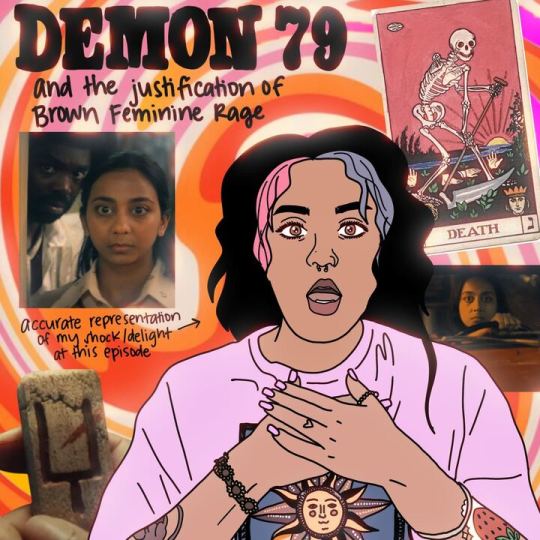
What if intrusive thoughts can be valid, and it is okay, maybe even necessary to act on them sometimes? If violence isn’t the answer, why must it so often be the question?
Set in Northern England, 1979, “Demon 79″ is the final episode of Black Mirror’s sixth season. It follows Nida, a meek sales assistant with a mousy appearance, who is tasked with the most complicated and important mission: to save the world by taking the lives of three human sacrifices in the days leading up to May Day.
Champions of the extended metaphor, Black Mirror employ the talents of Anjana Vasan (an Indian-born, Singaporean-raised, and U.K.-based actress) who plays Nida Huq and Paapa Essiedu (an English actor of Ghanaian descent) who plays Gaap*, the demon Nida accidentally invokes upon finding a talisman that begins this stressful mission of her. Gaap, devilishly handsome and charming, trying to earn his “wings” and be initiated into demonhood reassures the panicking Nida that she is not going mad, she is not a bad person, and the people she is encouraged to kill are vetted through his soul-reading as deserving of death.
*Gaap is considered through stories of demonology and texts related to the Testament of Solomon to be the Prince of Hell, with angels as siblings and a penchant for manipulating women and rendering them infertile.

Gaap adjusts his form to something more comfortable for Nida by changing into a look-a-like of Bobby Farrell from the famous disco-funk German-Caribbean vocal group known as Boney M. Having the representation of a demonic entity be a Black man while allowing him to manifest into a symbol of appeal for Nida turns the inherent vilification of Black men on its head without contributing to the hypersexualization of Black bodies. Gaap is never presented as a love interest for her, but viewers do get to see them develop a snarky back-and-forth. I almost never see Black and brown leads banter like this.
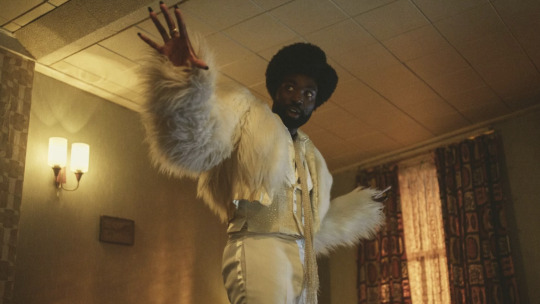
Another reason I’m glad Gaap was not portrayed as a sinful symbol of sexual desire is because Indian women already have to navigate a shame-fueled purity culture, and I wouldn’t want to see her grapple with her feelings for someone who is not only outside of her race and religion, but isn’t human. Writers avoided the idea that to love Gaap was to love something forbidden in all possible ways. And we don’t need to see Black folks depicted as not-human. The history of both American cinema and politics has acted on that dangerous perception already.
When I saw the opening scene of Nida with her wide eyes waking up to get ready for work, I recognized the doe-like innocence in her face as the one I have been raised to emulate. She looks so much like my mother 30 years ago. Minimal makeup, modest clothes, hair neat and tied back.
Moments of Nida’s inner demons being unleashed start off as fantasies she has. She is quietly scurrying through her life as an oppressed minority in 1970′s England, where xenophobia and racism showed up everywhere, from the actions of the British Nationalists to the microaggressions Nida faces at work for simply bringing her potent biryanis to the stock room and “stinking up the place”.
Indian women are some of the least visible in politics historically and presently because we are raised to not make a fuss of things, to be quiet and reserved and let white people act how they want towards us because we are guests in their countries, even when they’ve colonized and pillaged our own. I feel Nida’s pain as she thanks the white people around her for the bare minimum (allowing her an alternative place to eat, such as the basement - where she finds the talisman that changes her life) and avoids the confrontation and rage within her, even sighing in defeat at the NF* tag that has been spray-painted on her front door.
*NF stands for the National Front, a far-right, fascist political party in the United Kingdom, founded in 1967.
I crave catharsis for Nida. And for her late mother, whom she has a photo of in her apartment. She explains after the first sacrifice that her mother was perceived as crazy, and now Nida is afraid that people will think the same of her, and this time, because of what she’s done, it will be true. I wondered if Nida’s mom was called crazy because she had stood up for herself, reported abuse or harassment that was occurring within the Indian community itself or in her own home, or tried to leave Nida’s father. None of these scenarios would make the show seem like fiction at all, at least not for many of the South Asian women trapped by the chains of patriarchal ideals.
There are moments where I am concerned Nida is enamored by Michael Smart, a white politician giving a campaign speech outside the store she works at, as if his mere acknowledgment of her existence without visible disgust is enough to make her heart flutter. Again, I enjoy seeing a Black and brown lead in this episode, and knowing that other viewers are getting to see the many instances of white culture that exposes the racist ignorance and unfair power structures that exist in western society, workplaces, and even the homes of white folks themselves. (I was so happy for little Laura to hear of what was done to her assailant).
When it comes to stopping the world from absolute destruction in a nuclear holocaust, the heroes have never really been people who look like Nida. (It is worth noting that the head writer for this episode was Bisha K. Ali, who also is the executive writer for Disney+’s Ms. Marvel and has tackled many of the same representation issues in her work). People like her don’t have the permission to be loud, angry, or violent without consequences, no matter how justified. Meanwhile, with unchecked authority, bombs go off and innocent people die and children cower in their beds and white men get to act on their worst traits and impulses, however sinful, with little to no accountability.
Even when Nida is being violent, it is for the greater good. Because it has to be. Even female rage has to serve a purpose for others. It cannot just be hers. If she’s going to be angry, she better be trying to solve crime or save the world.
And through this most guttural and sometimes poisonous part of being a human, Gaap sees her. Maybe it’s because he has transformed in the image of Nida’s celebrity crush or maybe it’s truly the way in which he interacts with her, Gaap sees Nida. He recognizes the type of violence she would and would not indulge in. He tells her she should feel more at ease after killing the first sacrifice, a pedophile she clobbers with a brick before he falls into a river. He continuously recognizes her hesitation, and suggests “Dutch courage”, or booze before following through with the second kill. It is inappropriate in Indian culture for women to drink, which Nida notes when she tells Gaap she doesn’t. Then he asks her if she wants to, something, from the expression on Nida’s face, it doesn’t seem like she has ever been asked.
Upon entering a pub full of (yes, all white) men, Nida is dismissed by the (also white) female bartender who looks just as irritated by her existence as her coworker Vicky, who had reported how unfair it was that she had to smell Nida’s lunches and endure the lingering scent at work. An older (also white) bartender (who might be the owner) takes her order with the same polite and quiet discomfort of her boss, who had presented her with the basement lunch “solution” to appease Vicky. It’s subtle but the approaches in which different age groups and genders of white English folk take with engaging with Nida demonstrate the variety of ways in which people of colour experience discrimination. At its worst, it is violent hate crimes and unjust legislation that mutates into full blown genocide. At its mildest, it’s passive aggression and strained tolerance.
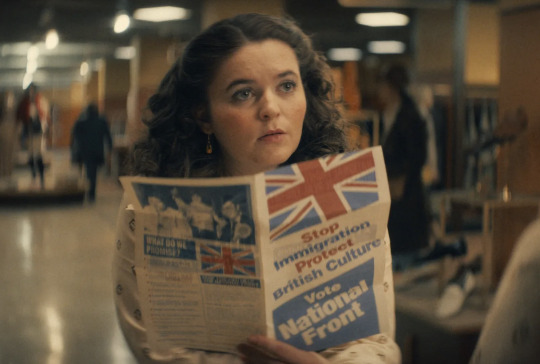
It’s more apparent with the second killing (of a man named Keith who killed his wife) that Nida does have the option to be as righteous as she wants to be, which is something I really appreciated about her character. Even if she was killing to prevent the literal apocalypse, and the clock was 6 minutes from midnight -- she must follow the cadence of at least one kill a day -- the moment she has to hear Keith’s justification for what he did and his attempt at absolving himself with the statement “I’m not a bad husband, but --” she swings a hammer at his head to shut him up. She then bashes his head in repeatedly, even to the point where Gaap is wincing at the sight. If this was just about killing people to stop a bigger disaster and loss of life, she wouldn’t be losing herself in the act like she did.
The third and final kill occurred in the next few minutes, as Keith’s roommate, witnesses her trying to exit, which presents itself as problem in allowing her to continue with the mission if she’s arrested. It’s messy because it was fast, the least premeditated, and she doesn’t know who the man is or if he’d done anything as bad as the previous two skills. Because of this, she’s much more apologetic as the man dies, later finding out from Gaap he was Keith’s brother, Chris, an “ordinary” person who would not have been one of Nida’s choices.
But as Gaap says, “What’s done is done”. And the three lines on the talisman should have disappeared indicating that Nida has fulfilled her duty. But it still has a line remaining, so a confused Gaap dials 666 (of course) on Nida’s rotary phone to explain the issue to his superiors. He tells Nida that Keith apparently didn’t count because he’s a murderer and anyone who’s been directly responsible for the death of another human being (not counting future deaths they might be responsible for) is off limits. Chris counted because his death still occurred just before midnight.
Nida doesn’t snap psychologically and decide she enjoys this and is going to become a serial killer, which is a direction I find common in other Black Mirror episodes, where the white and/or male character loses it and/or goes on a killing spree. She grapples once more with her initial unwillingness to participate in this because even when given the go-ahead and to have the most reason to, she enters a mental boxing ring with her instinct v. culture v. morals. From my own experience and what I have seen in my own community, outward expression of rage is never the first emotion a woman reaches for...because she can’t always afford to in the way others can.
“My whole life, I never wished harm on anyone.”
Gaap tells her what’s at risk for him, and he describes a fate of punishment that she says sounds like her life now. She stands, empathizing with an actual demon, and deciding to continue with the mission. Gaap also reminds her this isn’t solely for him; she possessed a darkness within her that drew her to the talisman. So, he asks her, who pissed her off?
To Possette’s Shoes they go.
Vicky, a prime choice for the grand finale, delegates the task of attending to the young girl Laura (from earlier) and her mother to Nida. Because the little girl creeps Vicky out. Gaap informs Nida that because she killed Laura’s dad, Laura doesn’t kill herself at 28 and instead goes to therapy, becomes a mother at 29, and a grandmother at 57. It’s a comforting thought amidst the mayhem of it all.
Michael Smart makes an appearance once more, as his father and the boss’s father, are old college friends, and Nida’s boss had promised him a suit and shoes on the house. The boss unsurprisingly selects Vicky as the sales attendant, with Gaap grumbling to himself as Nida’s eyes go from ‘excited crush’ to just crushed. Her boss then chooses to notice the boxes on the floor from when Vicky could’ve been cleaning up and hisses at Nida, “Could you pick up the bloody mess?” This prompts Gaap to suggest the boss be the next to go.
Nida moves on to cleaning up the boxes, eavesdropping on the conversation between Michael and Vicky. When Michael says he hopes he has her vote, she says she is siding with the National Front who she believes will help rid the town of all the pesky foreigners. And then Michael Smart reveals himself to be what a lot of politicians are: covert bigots. He explains to Vicky that an explicitly xenophobic campaign would be too polarizing, so you have to elect a moderate who can win over the masses and put the evil plans in motion. (Sound familiar?)
There is a subliminal language spoken among white supremacists, even if they smile politely at people who look like me and Nida. And this revelation that she witnesses presents an even more justifiable option for Nida’s third kill.
She asks Gaap to give her information about Michael’s future, which he hesitantly reveals to her. Michael Smart wins the election, eventually becomes prime minister, and leads a new world order built on white supremacy. Nida decides he is the final target, but Gaap tells her he wouldn’t be the right choice because the Satanic world he comes from is a fan of his work and everyone there would want Michael to be able to facilitate the upcoming deaths that occur as a result of him first winning the election to become a member of Parliament.
But Nida is set on him, or no one, giving Gaap the ultimatum to get on board or risk his own banishment after failing his initiation.
Meanwhile, a police investigation occurs which leads to the bar staff identifying Nida as a “muttering Indian woman” who was at the bar the night Keith died. Len Fisher of Tipley Police arrives at Nida’s apartment, as part of routine questioning, and she invites him in, with Gaap’s suggestion to kill him.
Fisher is the first white person to speak to her as person, too, even though he’s there on the premise of Nida being a potential suspect. Maybe this is more covert trust-building behaviour, maybe as a cop, maybe as someone generally suspicious of people of colour. He is the most mild-mannered, middle-man in the whole story.
Fisher follows Nida who follows Smart after his speech at town hall. This is where I’m a little surprised but not displeased. The other episodes end with something sad, violent, and/or redemptive. Nida gets a bit of everything, but as with all things Black Mirror, not in the way you’d expect. In society, Nida may be reduced to a mad woman telling an insensible story, enduring the same perception people had of her mother. But society doesn’t last long, and she walks off into a kind of nuclear, fiery sunset with a new friend.
The deadline for the sacrifices had been May Day, also known as Workers’ Day or International Workers’ Day to commemorate the struggles and gains made by workers and the labour movement. Nida, representing intersectional identities of the working class (immigrants, women, people of colour), was not listened to or believed, and the world ended because of it. Her weapon of choice had been a hammer, a tool meant for building that was used for destructive but necessary purposes. This could be a reference to the Communist party’s symbol of a hammer and sickle, which represents proletarian solidarity. The meaning of the episode, particularly its ending, captures the significance of the working class and how our world relies on them to function and last. When their efforts are stunted, their sacrifices are in vain, or they are not heard, the world ends.
#black mirror#demon 79#tv series review#black mirror season 6#paapa essiedu#digital illustration#fanart#commissions open#anjana vasan
271 notes
·
View notes
Text
Hello. List of what animals I believe each just roll with it pc I know would be. I am objectively correct but if you disagree please tell me anyways I crave other people’s opinions to steal.
Riptide
Jay: a bird, obviously. Saying she’s a jaybird is easy and low hanging fruit and extremely valid. Personally I think she’s maybe a corvid since very smart but also absolute fucking menace. Honestly? Could be a seagull. Loud and lives near water and also smart but also? Absolutely insane. Yeah sure I could say she’s something cool like an eagle or whatever but I think in our hearts we all know she’s a seagull.
Gillion: of course he is a sea creature! But what kind? Fish. More specifically? Swordfish. Of course. What else could he be (he could be a shark but shhhh im saving that one for later)
Chip: the bastard man himself! Which animals are the biggest bastards? Raccoons. Yes I am basic. He’s either a raccoon or a little dog. I am specifically thinking my mom’s 11 year old small dog who yells at men and tries to pick a fight with every single dog that is larger than her. That’s some Chip energy right there.
Goobleck: bro who knows like what the hell is that thing i do not. Hes whatever he ate most recently. Bros fursona is just straight up slime. He is an enigma.
Prime defenders (+Ashe I don’t care that technically he was just a guest he deserves to be here)
William: ravens, black cats, bats, butterflies, snakes, crows. All associated with death which makes sense for our little ghost guy! But of course we can’t forget wolves! He has two wolves inside of him after all. But also? He is not cool enough to be a wolf. That man is a black cat with a dream and sharp sharp claws.
Vyncent: I think it would be funny to call him a rat. Since he eats them. And also he just kinda is a rat. But no, I believe he is a deer. Don’t really know why, just….. vibes.
Dakota: my beloved son. He’s a yappy little dog. Bouncing all over the place and screaming at evil-doers. I believe in him.
Ashe: strong cat energy. Is william already a cat? Yes. But so is ashe. He’s like a fully gray cat with short hair :)
Apotheosis
Rumi/Elena: fox! Because Sunny :) also because I can’t really think of an animal that would be a good representation for an identity crisis
Peter: “lizard” no. Peter Sqloint is a mouse. Just a lil guy. I’m right fuck you he. Is. A. Mouse.
Thanatos: spider! Kinda scary and lots of people dont like but in reality just an awesome dude. Shoutout to my friend’s pet spider Mörkö I love them
Blood in the bayou
Rolan: shark!!!! Im right and i need to say it. That man is a fucking shark. I love sharks. Sharks are generally misunderstood as violent and evil but they are just lil guys. Fits Rolan being an evil alien monster but just also a lawyer. (Also i just really like sharks)
Rand: y’all ever cry about pigeons? How we domesticated them and then abandoned them when we didnt need them anymore? How they dont even know how to make proper nests because they didnt need to for so long? Yeah. Im normal about this campaign.
Kian: he’s so hard to figure out because like…….. honestly? In canon? Weve got no fucking clue what his personality is actually like. We dont get a single moment with all the masks off and just the person underneath. The closest we get is him admitting that hes not really a rockstar and even that is so short and just. Auehgeh. This is why im obsessed with him btw i love a mystery i know will never be solved. Also so much room for headcanons. Is he a cat? A butterfly? A dog? A snake? A songbird? A dove? Something else? I dont know!! Lets go with a moth
The suckening
They are all cats. I mean c’mon. Emizel is a feral street cat that hisses at everyone who gets too close. Shilo is an indoor cat with an anxiety disorder. Arthur is their mother. Im correct.
#just roll with it#jrwi#jrwi show#jrwi bitb#jrwi riptide#jrwi prime defenders#jrwi the suckening#jrwi pd#jrwi blood in the bayou#jrwi suckening#jrwi spoilers#im not actually sure if theres spoilers but just in case#jay ferin#gillion tidestrider#chip james#william wisp#vyncent sol#dakota cole#ashe winters#jrwi rumi#peter sqloint#jrwi thanatos#rolan deep#timothy rand#kian stone#emizel tucker#shilo bathory#arthur bennett
52 notes
·
View notes
Text

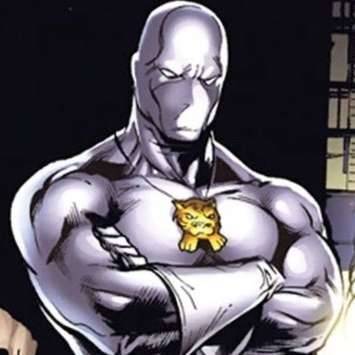
propaganda under the cut
Samuel Chung: sammyyyyy
sam chung is an 'illegal' chinese immigrant living in china town, nyc, who was brought to the us as a younger child by his (later) neglectful and abusive mother. he has a younger sister, hannah, who is the only us citizen in the family and therefore is the only one able to hold a secure job. he works odd jobs until he uses old knowledge from his childhood in china to become a vigilante named blindspot. he's horrible at it at first until he meets daredevil, the hero he took inspiration from in the first place. the two work together while his mother grows more involved in a cult who had stolen power from an ancient cult with ancient magic. he works his way out of it, being the icon that he is and confronts his mother. he later loses his eyesight trying to protect civilians from his soon-to-be nemesis, muse, who plucks his eyes out when daredevil comes to save him. his character is cool as fuck in the sense that daredevil comics as a whole does not steer away from political topics and the significance of sam as an 'illegal' immigrant and a vigilante trying to make chinatown better in a comic which focuses on a disabled (blind) man who is both a lawyer and vigilante who swears to make his town better both through the law and outside of it is important. to me. if you don't vote for him you're shunning a very specific kind of representation both when it comes to race, immigrant culture and survivors of abusive parents.
Hector Ayala: He's a badass and a sweetheart, street-level vigilante, campaigned for Black and Hispanic education rights, was buddies with Peter Parker in university, and passed his legacy to his niece and sister! He got screwed over royally when Marvel decided to kill him off for a Daredevil plotline...after years of established character development.
#actual polls#samuel chung#blindspot#hector ayala#white tiger#ah yes the fucked over by daredevil comics match
23 notes
·
View notes
Note
emme i am in need of assistance.
i need to be dragged kicking and screaming back into the newsies fandom, please and thank you
you know what? fine, sure, let’s do this.
in this fun little drag-you-by-your-ears-and-force-you-to-listen-to-me, we’ll be talking about javey.
obviously, javey is the lifeblood behind most of this lovely fandom. look at your own account. besides the synchronized dance numbers, it’s about the most the majority of us agree on (with a few exceptions, but we love them anyway <3333 /j)
but why is javey such a phenomenon to us? why is it that big of a deal? let’s explore that.
javey is, in simple terms, something that can quickly become revolutionary.
don’t understand what I mean? consider it-
most of us headcanon jack to be a person of color. whether he’s black, or of latinx descent, jack is not normally white. in a lot of cases, people don’t even believe english to be his first language. with these very intentional choices, you are already taking marginalized groups, and giving them a voice. groups, that for most of history, have been shunned, or outright ignored. and to see jack kelly, a character not defined by his parentage or skin color, simply *living*. making choices, mistakes, wrong decisions, without being turned into a performative political message by a major corporation. he’s just jack kelly. and his existence speaks louder than words ever could.
and all of this can be said before we even mention what else he could represent, could mean to all of us.
he’s a kid from the streets, or the more modernized foster care. he’s not the sad, lonely, discouraged orphan kid that needs saving. no, jack kelly is going to get off his ass, and do it himself. he’ll run away. earn a living. he is our defiance, he is our rebellion and independence.
he has dreams, big ones. ones that we relate to. he wants to run to santa fe? well, guess fucking what? we do, too. wants to be given a little respect, a little worth? maybe we relate to that.
he is the poster child of found family. and I don’t know if you’ve noticed, but we’re all pretty big on that in this fandom.
so, let’s put it this way- jack is a lot of us. most of us, maybe.
but so is davey.
davey is a canonically (or maybe not, but I say it’s canon) jewish character. in a world that reeks of antisemitism, that is ridiculously important. he, too, represents more than just himself. there is a whole history of a people hated and brutally punished for simply existing. he is another character who isn’t restricted, forced to be but yet another stereotype or one-note idea, but who just exists. you don’t realize how huge that is. representation and the explicitness of modern media is great, and very much needed. but it is just as powerful, if not more so, to let a character be without making it a display.
to compound this all, he is the epitome of religious struggles. our davey has internalized homophobia, self-hatred, and more crises in faith than he has time to count. and I would say at least half of the people that I have met in this fandom can identify with one or more of those things. that’s valuable. especially when you consider that a lot of those things are essentially taboo in a number of regards.
he’s from a working class family. he’s not rich, not swimming in bills. he’s missing school every day to go to work so his family might eat the next week. and that’s a reality for a lot of people.
putting them together, we have- a man, a person of color, who has seen the shit end of life that a lot of other people do, falling in love with another man, one burdened with mental struggles and a heritage that carries just as much weight as the heaviest, in a time period when it was literally illegal to do so.
they are people. they are representations. they are silent messages to the world. they are love. they are queer. they are happy. they are a family. they are revolutionary. they aren’t wrong. they aren’t broken. they aren’t hate.
javey thrives because they are us, and by letting them thrive, we are hoping we will, too.
(newsies, with more layers and deeper meanings than one could have ever hoped for since 1234)
ta da.
#newsies#92sies#uksies#livesies#jack kelly#manhattan newsies#west endsies#davey jacobs#david moscow#david jacobs#jack x davey#javey#javey newsies#javid#newsies broadway#jeremy jordan#ben fankhauser#michael ahomka lindsay#ryan kopel#1992sies#newsies 1992#gay newsies#gay#jack kelly newsies#francis sullivan#newsies david jacobs#christian bale#emme’s bad ideas
40 notes
·
View notes
Text
Paris is Burning: the Fabulous and the Ugly of Queer POCs in the Shadow of NYC
"Ball is like crossing into the looking glass, a wonderland. You go in there and you feel 100% right of being gay."

Directed by Jennie Livingston in 1990, Paris is Burning follows the Ballroom culture that originated in NYC, an underground LGBTQ+ subculture, where African-American, Latino gay men, and transgender folks "walk" in drag and attend performance competitions to win cash prizes and trophies in categories like “Face,” “Femme Queen Realness,” and "Voguing." In the 1980s of New York City, queer POCs were extremely ostracized due to their sexuality and race, they struggled in the dark ghetto of this metropolitan area, while the Ballroom community offered them a shelter to be their authentic selves. Most participants of Ballroom belong to groups known as "houses." Folks could choose their own "mother" and siblings who accept them and love them, for being gay. What's more, Voguing became queer POCs' distinct way of self-expression. Dancers act in different poses, with an emphasis on the movements of arms and body, just like the model on the cover page of the magazine Vogue. And it is all about confidence and self-love. In this sense, Ballroom became an identity celebration of the oppressed, the exiled, and the outcast, where queer folks of color find status, acceptance, and worth.
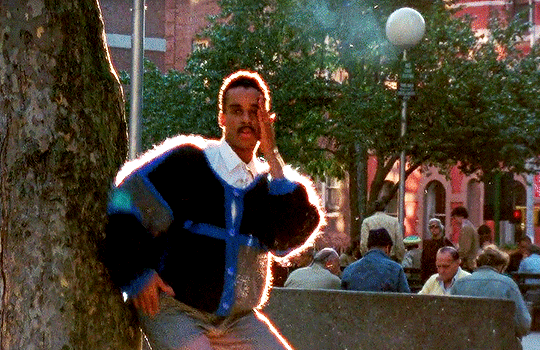
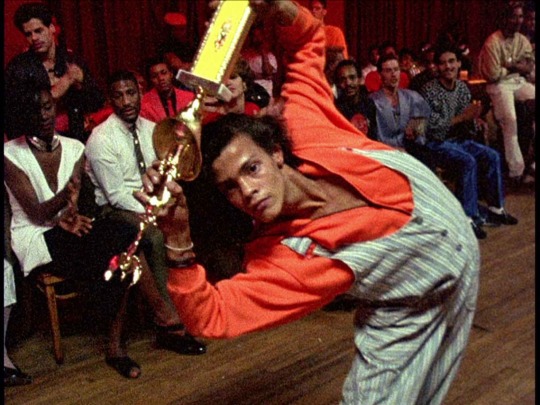
Regarding the documentary itself, I argue that Paris is Burning breaks into the mainstream media with its groundbreaking representation of black gays and trans people of color and its disclosure of the intersectional oppressions faced by queer POCs; however, the representation of "performance competitions" is still constrained in the frame of gender performativity, and the production of it is criticized as an appropriation of Ballroom culture by a privileged white filmmaker.
Here is a trailer to have an overview of this documentary.
youtube
Part 1: About Intersectionality
The biggest message Paris is Burning brings to the table is intersectionality, where it captures black gays and trans people of color as well as their subculture. Queer theory actively acknowledges the importance of queer of color critiques. That is, oppression on various aspects of identity intertwines and compounds together, such as sexuality, gender, race, age, class, and ableness. And each oppressive institution (racism, sexism, homophobia, transphobia, etc.) cannot be examined separately from one another. Queer folks of color are being ostracized and marginalized not only within larger society but also in the queer community, meaning that they face multiple oppressions. And it is true. A gay man of color in the documentary said, "I remember my dad used to say, 'you have three strikes against you in the world. You are black, a male, and you are gay; you are going to have a hard fuckin' time.'"
Tracing back the history of Ballroom culture, we also see the significance of intersectionality through its origin. Black and Latino drag queens used to experience racism in established drag queen pageant circuits. Although participants were racially integrated, the judges were almost all white. Since then, drag queens of color have begun to organize their own pageants, the Ball. In that case, Ball culture becomes a retrospective symbol of the era when queer people of color underwent discrimination from multiple sources.
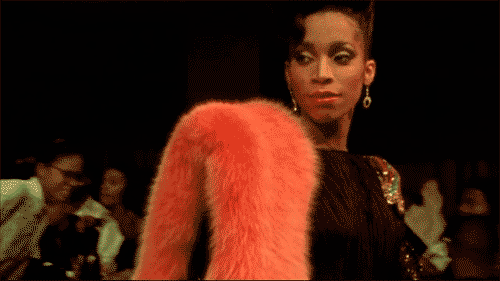
Venus Xtravaganza, a trans woman in the documentary, whose murder reveals the very dark and brutal side of intersectional oppression. Venus, an Italian-American, was saving up money for gender confirmation surgery while earning a living as a sex worker after she was excluded by her family. However, her dead body was found at a hotel on Christmas Day, 1988, during the documentary's shooting. But her killer was never found. In the documentary, she described the experience of being attacked by a man who discovered she was transgender during an intimate encounter. Hence, Xtravaganza's trans identity, multiraciality, homelessness, hustling, poor access to health care, and AIDS — all these aspects layered together contributed to the tragic end of this beautiful life.
Below is a clip about the self-narrative by Venus Xtravaganza.
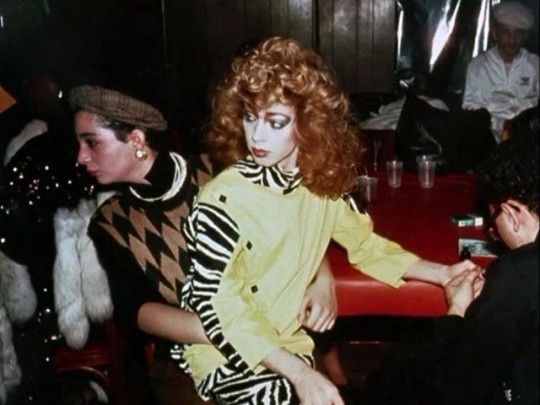
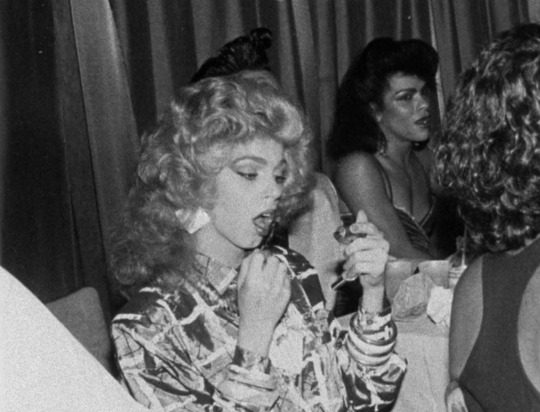
youtube
“The most profound and potentially the most radical politics come directly out of our own identity, as opposed to working to end somebody else's oppression" (Collective, 1983, p. 210). In other words, coping with oppression is inherently associated with identity politics, a deconstruction of identity and labels. What queer folks of color need are to be recognized as normal, equal, lively human beings.
Part 2: About Gender Performativity
It is undeniable that Paris is Burning is a milestone in portraying queer POCs, however, there are still some controversies. Firstly, the representation of "performance competition" still conforms to the tenet of gender performativity. To articulate that, we need to know the basic rules of competition in a given ball first. There are various "categories," or themes, for each competition, such as "Military," "School," "Executive Realness," "Butch Queen's First Time in Drag at a Ball," etc. And participants need to dress according to the guidelines of each category; for example, they wear “yacht wear," military garb, the outfits of private school kids, business attire, and extravagant dress to adhere to the rules.
Here is a clip from the documentary explaining "Categories."
youtube
Overall, we can see these queer POCs parody their heterosexual counterparts. It seems effortless for them to perform high femininity or masculinity in a world of heterosexual folks. However, these "categories" also signify that they are still in a dichotomous system and perform binary genders.
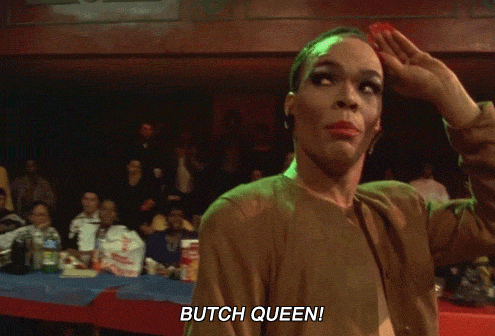
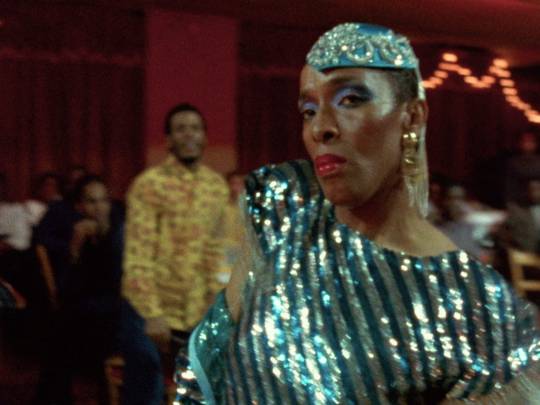
Another category called "high fashion evening wear" required participants to dress and act as an elegant, beautiful young lady wearing an evening dress. Every participant was strictly required to have a purse. "An evening bag is a must, you have to carry something; no lady is sure at night." This kind of "norm" reminds me of the gender performativity theory by Judith Butler: gender is not something we are but something we do. However, due to the reliance on norms, we "do" genders through imitative performance, ultimately leading to extended repetition. In other words, we have no authentic gender.
The voiceover of the documentary said, "The more natural you are, the more credit your outfit is given." "Give people a sense that they are not gay, like a real woman or a real man." However, what is "natural" and what is "real"? What is even a category? As Judith Butler has argued, "we cannot necessarily assume that binary biological sex everywhere provides the universal basis for the cultural categories ‘male’ and ‘female’. If gender constructs are culturally variable, then so are the categories of sexual difference" (cited in Andresson, 2002, p. 6).

Being different is not a flaw, which is the spirit of the queer community. Unfortunately, the documentary did not highlight how queer people of color get rid of the constraints of the binary system or how they go against the mainstream, which makes it less queer.
Part 3: About the Production
Much of the controversy surrounding Paris is Burning has also centered on the perceived appropriation of a black gay subculture by a privileged white queer filmmaker for profits. Jennie Livingston is an American director. She graduated from Yale University in 1983, where she studied photography, drawing, and painting with a minor in English literature. "Whiteness" and the social status of an "ivy student" are critical privileges for Livingston. What's more, she identified herself as a lesbian. It seems Linviston's queerness helps her to enter the industry and tell stories about black gays and trans people of color even though she is not a part of the Ball community.

It is not surprising that the filmmaker's white view leads to stereotypical depictions of black folks in the documentary. For example, the "Banjee" competition features impersonations of the gum-chewing, round-the-way sexy girl on welfare or the crackhead gangbanger on the block. Besides that, Dorian Corey, an experienced drag queen, said in the documentary: "Black stars are stigmatized. Nobody want to look like Lena Horn, everybody wanted to look like Marilyn Monroe." This scene amplifies the drag queen's self-hatred, solidifying the admiration for whiteness among drags. But this kind of representation is biased.
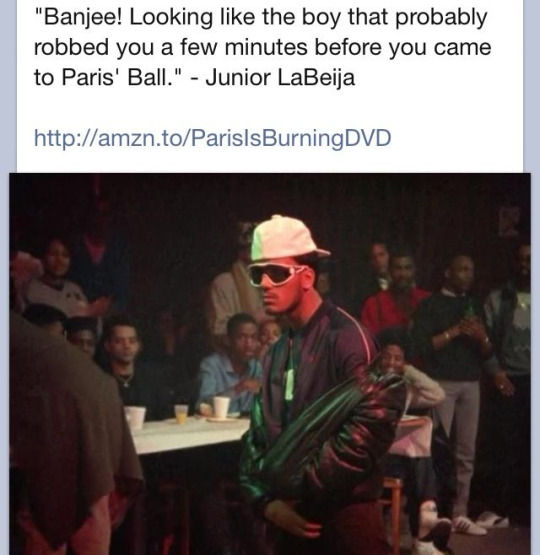
"Too often, people with resources who already have a platform become the ones to tell the stories of those at the margins rather than people who themselves belong to these communities" (Tourmaline, 2017). We need to strive for a time when queer people of color have the opportunity and capital to shoot their own stories. “Power struggles over control of one’s image and access to the tools of media production were, and still are, crucial in communities of color” (Parkerson, 2020). Although the show Pose has made some breakthroughs by hiring trans characters and trans writers, it is hard to make any substantial change in this inherently racist, heterosexual, white male-dominant industry.
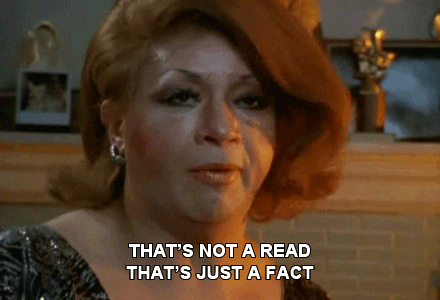
Moreover, the film made 4 million dollars, yet only $55,000 was distributed among the 13 performers. Performers felt cheated and were not satisfied with their representation in the documentary. In 2014, when the documentary was to be screened at a public event hosted by Celebrate Brookly! / BRIC, a protest was raised. In such circumstances, Livingston would apologize for the cultural appropriation to her own advantage.
Here is a clip showing the life of performers after the Paris is Burning.
youtube
Final Thoughts
"Good or bad, Paris is Burning is a milestone in the gay community."
Considering my own subject positionality, as a straight, cisgender woman of color from China, I have to say that watching Paris is Burning is definitely a fascinating and eye-opening experience. Regardless of some of its biased representation, this documentary makes me take a glimpse of the Ballroom culture in NYC which has extended globally and influenced a lot of Chinese queer folks in recent years. I also get to know some drag queen shows becoming popular in underground clubs located in Shanghai and Beijing.
Meanwhile, I deeply resonate with this group of outcast New Yorkers, for whom racism, poverty, and homophobia are too real, too tough, while they create a world of sustenance and belongingness by themselves. It is all about the power they give to themselves. In the name of glory and pride, they dance, scream, suffer, survive, and most importantly, be themselves here. Ballroom culture makes them not stay in the shadow of NYC, but throw the shadow on those who demean them. All in all, Paris is Burning is the "fire this time."
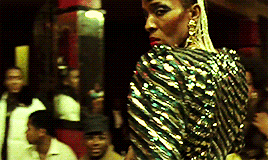
References:
Andersson, Y (2002). “Queer Media?: Or; What Has Queer Theory to do with Media Studies?” IAMCR, 1-10.
Collective, C. R. (1983). The Combahee river collective statement. Home girls: A Black feminist anthology, 1, 264-274.
Martin, A. L. (2018, August 2nd). Pose(r): Ryan Murphy, Trans and Queer of Color Labor, and the Politics of Representation. LA Review of Books. https://lareviewofbooks.org/article/poser-ryan-murphy-trans-queer-color-labor-politics-representation/
Parkerson, M. (2020, February 25th). Paris Is Burning: The Fire This Time. The Criteron Collection. https://www.criterion.com/current/posts/6832-paris-is-burning-the-fire-this-time
By Selene
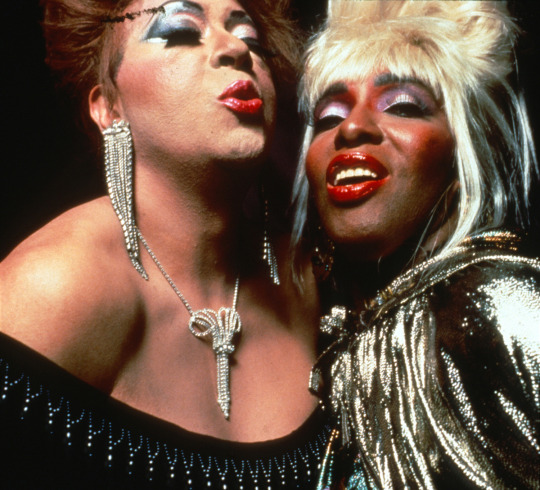
#queer media#queer film#queer studies#paris is burning#ballroom#nyc#voguing#documentary#lgbtq#lgbtq+#drag queen#Youtube#ball culture#drag#transgender#gay rights#gay movement#intersectionality#gay movie#movie review
127 notes
·
View notes
Text
I noticed there’s a lot of discussion about Christianity in Trigun, but I don’t really see anyone talking about Taoism (I don’t know if I just haven’t seen it but I’m gonna say something anyways lol)
I noticed that in the final fight between Vash and Knives in the og anime, their energy blasts made a yin yang symbol twice so I had to go look up the beliefs of Taoism to be sure if it was on purpose


Taoism philosophy is based on three pillars: simplicity, patience, and compassion. I’d say these traits suit Vash extremely well. And even Knives if you switch the compassion part to plants instead of humans.
Along with these pillars, the teachings of Taoism are: Going with the flow, Letting go, and Harmony. Throughout the series Vash’s very being reflects these teachings.
-He usually tries not to stay in one place for too long and is really good at accepting whatever situation he finds himself in as long as no one is killed
-His whole thing is wanting humans to live in harmony with each other (LOVE & PEACE ✌️)
-And he even manages to let go of Rem at the end of the series to a certain degree so that he can deal with Knives in their final confrontation
Then there’s the yin yang symbol.
I’m just going to paste what I got from a site I researched from:
-The yin yang is a symbolic representation of the world's polarities, dualisms, and fundamental dichotomies: light and dark, male and female, life and death. Although the light and dark sides of the yin yang represent duality, the two halves are not entirely opposed.
-Taoism recognizes that distinction and dichotomy exist, but emphasizes the ultimate relativity of everything. What seems good at a particular time, from a particular perspective, can seem evil from a different perspective.
I think this part plays into how sometimes Vash saving a life can cause trouble later on if it’s a violent person he’s saving like in Badlands Rumble even though, ultimately, his desire to save every life comes from a good place.
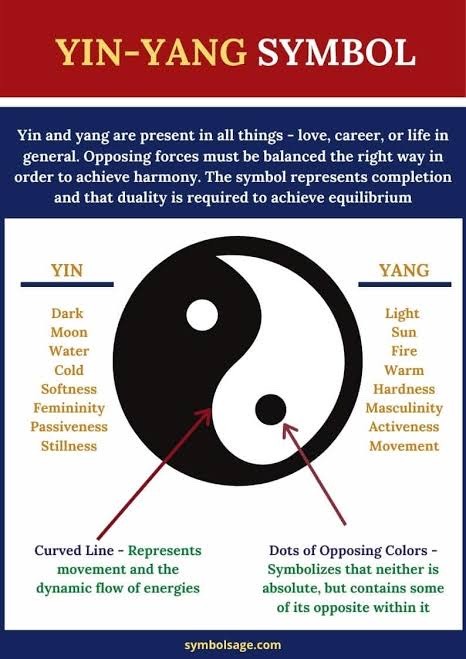

Vash is the Yin and Knives is the Yang. They both play into their respective parts of the symbol so straightforwardly. Vash’s energy is feminine, softhearted, and intuitive. Knives is clearly played as his direct opposite as the masculine, hard hearted, and logical side (especially in tristamp, I feel).
Knives’ body suit is even white while Vash’s body suit is black, and their energy blasts here also correlate with what each side is supposed to mean for each of them.

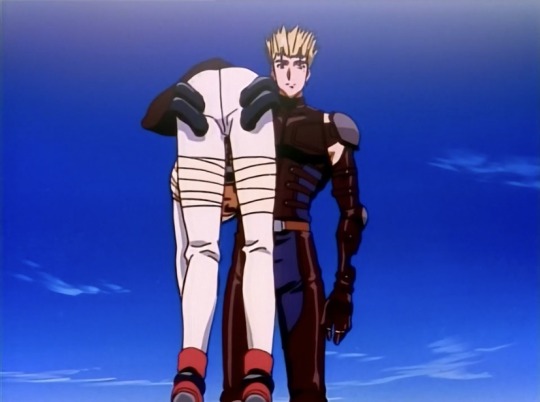
(Best picture I could use of the two of them in their body suits together sorry) It’s really amazing how much symbolism went into the making of Trigun, man. Masterpiece.
#trigun#trigun stampede#vash the stampede#millions knives#tristamp#trigun thoughts#sorry if no one talks about this because it’s so obvious but yeahhhh#or maybe because it’s more overt in the OG anime versus the manga that i still haven't gotten to reading idk#anyways if you actually read this#meet me at 8 ;) /j
42 notes
·
View notes
Text
“He sat motionlessly, his shimmery blue-black hair glinting in the dim light, his pale blue skin looking cool and subdued and very alien on his otherwise human frame. His eyes were nearly closed… only a glint of red showing between the lids.”
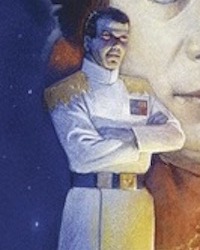
the foundation upon which all thrawns stand. a boring foundation. basically just a human man with some alterations. look like someone you'd work with and be like. unremarkable. which, like. is kinda the opposite of what thrawn's whole deal is supposed to be. 4/10.

the comic cover is so stylized. his head just kinda fades out which is very funny to me. start of just like. red rectangles for his eyes which I respect so much. 8/10 because the fade out is goofy as hell.
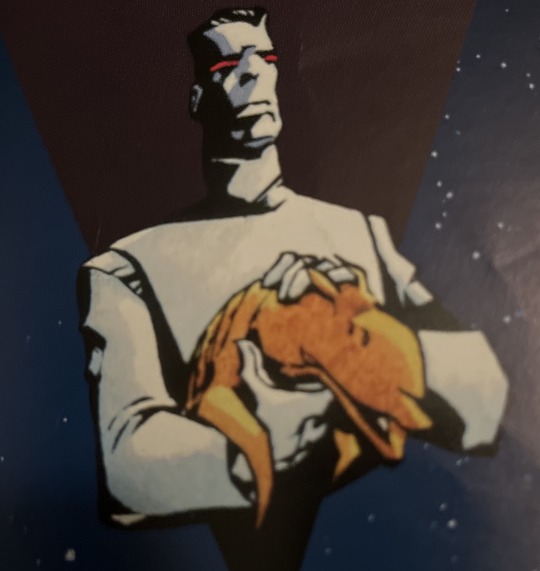
inside the comic, we get this goofy ass guy. he is just so shaped. broke down to his essentials. gained some gloves but lost the pauldreons and his rank plaque. this thrawn doesn't care. he is simply rectangle. he is a bond villain. forget that ysalmari can't live detached like that. he is shaped. 12/10.

this was uh. on the back cover. he's um. cursed. I can't express how much this strikes fear into my heart. he's like a wrinkly ass Mads Mikkelsen. he's got more wrinkles than palpatine's old man arms. he looks like someone crumpled him up and then botoxed him. he is horrifying. his eyes are um. very good tho and they are glowing and I do appreciate that but his nice eyes won't save him. -10000000/10.

we got the legends reprint thrawn which when you put together HttE and DFR you get uh. this guy. Whoops. (and this is the least janky pic!) who approved this. I just wanna talk. looks like we got a different eye take sorta? kinda interesting. but mostly he's like mad and wonky and it's just not a good representation! almost kinda looks like Spock. I'm sorry Spock, you deserve better. -100/10. Not haunting, just bad.
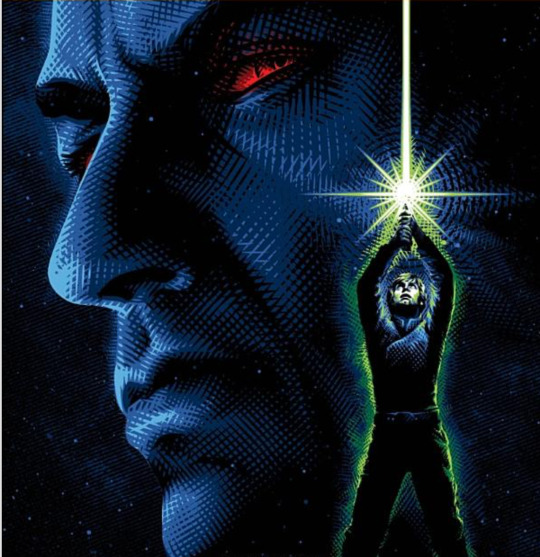
and finally, a pallet cleanser. refreshing. the uh re-re-re-reprint of HttE. art style is very cool. they went with the he does have iris and pupil but it's all red. nice. overall Very Handsome. Kissable, even. Not that I would kiss a book cover. never done that. 10/10 just lovely.
#HELLO AND WELCOME TO THIS SERIES#thrawn versions rated#character rating#Star Wars#thrawn#heir to the empire#I hope I got em all
40 notes
·
View notes
Note
Would you describe aegon as a ‘good/deep/complex’ (and more along those lines) type of character in the book? I’m curious to know your opinion as this is how so many Aegon fans describe him.
"Good" as in morally good? Obviously no. As in "well-written"? Eh, so-so.
A)
I may have written a long meta about him HERE, but I thought this was so that it could make clear that he still is a spoiled raping prince who feels entitled to having power--even with him saying Rhaenyra should have--by the principle of him being male. As in "heart of hearts". As one Tiktoker I-recently-listened-to-but-can't-remember-the-name-of said, Aegon II is Rhaenyra's literary foil in that he is the result of how a patriarchal society creates its own enemies in men, creates a rapist, etc. Therefore, he's "complex" in his representational value more than as a person himself.
I see him refusing to be king at first and deferring to Rhaenyra being older/sister/chosen heir as him not really wanting the actual responsibilities and commitment of being a leader and wanting to live in a male-privileged state of ennui forever.
B)
I also think that when some people use the word "good", they want to say they find that character emotionally compelling or "relatable" but do not want or know how to explain what they find so emotionally compelling. Or what they relate to. "Emotionally compelling" vs "relatable" is sometimes kind of the same, bc the reader is matching with traits, behaviors, and motives they experience(d). But sometimes "emotionally compelling" is recognizing a character's core desire, how it developed, understanding how they could be so passionate, desperate, etc., and admiring their determination, endurance, etc. Others say "good" to say "was this character's development logical from their experiences and does it, therefore, seem natural and emotionally realistic". And others say "good" as in "was there a fair distribution and relations of social dynamics between these sort of characters and those sort of characters"--for example, how writers write their men vs. their women comparatively to their other men and women; some claim Rhaenyra is the least well-written female Targ bc she doesn't do the strategizing as they wished she does or because she herself was not as forward-thinking or compassionate as they want a leader/a female leader to be.
C)
I think GRRM could & should have made Rhaenyra at least come up with parts of the dragonseeds or capture of KL's with Daemon and her son even with Luke's death [scroll down to section B] (the black council advised her and deliberated on the message vs outright violence with her only saying that she forbade her kids to fight in a confrontation with the greens while said greens were in KL).
I say "parts" bc I wouldn't have believed, personally, that without a POV showing me how she did it, Rhaenyra (or ANYONE) could have pushed aside her grief at Lucerys' death to think very straight to come up with a sophisticated plan without advisers.
GRRM does have a habit of making debilitating grief the means of disallowing women/potential female leaders from addressing certain critical problems in his writing [scroll down to section B],
BUT I also think (if he left Aelora and enough of other women alone simultaneously) it's unfair to expect a person, man or woman or enby--to "pick themselves up" and be the perfect leader and push away all their grief and STILL come up with plans that will "save the day" without that taking a toll on their psyches. Again, parents can and have maimed/killed to preserve their kids' lives with little to no compunction. It's a visceral/sometimes strongly reflexive bond some people will never get or have because some are infertile, dislike kids/babies and were not paternal (this word is used for the general inclination towards nurturing and parenthood), or simply do not want children (which is fine, it'd be weirder if everyone did). But they don't have to "get" it to know that it's not wise to not antagonize a caring and protective parent.
D)
In view of Aegon having raped many women who he has a lot of sociopolitical power over, and rape being a crime/act so heinous that I think that it merits death, exile, or castration, I find it hard to understand why people wish to relate positively to the emotions and motivations of him in particular when the evidence in the show is clear AND in the book, with a personality and position as his, rape is never going to be far from his "fondling". We know this from our own stories of rape culture and overly-privileged rich boys and fraternities. We know mothers can snd do often cover for their sons. Why would it be different for Aegon & Alicent, esp when we've seen that Alicent is all for usurping Rhaenyra and endangering her & her kids' lives?! (book & show). Well, it can only be the persons have misogynist ideas of women:
cannot stand women being actual people with flaws and searching for power without having been rape victims to "make up" for that loss of control
want women to exist to "calm" men down from their naturally violent tendencies so those men can rule "empathetically" or not become tyrants
So they naturally go to stan a rapist over a woman who had consensual sex with all of 3-4 men in the show and 2-3 men in the book for all of her life AND was the one actually usurped and lost children due to the other sides' plots and ambitions.
#aegon ii#asoiaf asks to me#hotd fandom#green stan nonsense#green stans#aegon ii's characterization#fire and blood characters#fandom misogyny
11 notes
·
View notes
Text
This opinion is gonna get me cancelled so hard and so fast but I've seen people that are worried about Armand's portrayal in Amc's Iwtv now that he's a man of color and that him being a cult leader could be problematic but I don't think we should watch the show as healthy representation Louis is a black pimp that chose his tormentor over the daughter he doomed for eternity, Lestat is a white savior "I don't see color" abusive cheating bisexual, Claudia grows up into a toxic household and goes through so much trauma that she becomes like her maker, Lestat and Claudia don't have catharsis they don't break the cycle of abuse and violence and the interviewer (even that spark of youth and future and possibilities that was in the book gets erased) is a failure in every way with his family, relationships, drug addiction and being well past his prime. These vampires are bad (of course on different levels, Lestat being the worst) the books were always about that, it's gothic it's Horror with a capital H, these are the worst of the worst of the worst. They have taken their experiences in life and unlife and those have shaped them into very troubled and irredemable beings.
The core of the series is "what is it like to keep on going, to never stop, how do piling up the emotions experiences, traumas, lives lived impact a being whose very nature is unforgivable and grotesque, they're horrible there's no denying it but for some reason we still root for them because in some way we think there still something that is worth saving and that maybe they'll change.
Armand IS gonna be a horryfying Monster like every other character in the show and his actions are gonna be influenced by his life like how:
Lestat actions are influenced by his life
Louis actions are influenced by his life
Claudia actions are influenced by her life
People are the products of their environment even if it's not good representation sometimes people are the worst version of what they could be
#iwtv#iwtv amc#interview with the vampire#lestat de lioncourt#louis de pointe du lac#claudia de lioncourt#the vampire armand#daniel molloy
91 notes
·
View notes
Text
Part two: Sirius Black: the victim of the system he was born to rule
In my previous meta, I discussed how Sirius’s unacknowledged privilege forms a large part of his psychological shadow self. In this meta I will discuss how Sirius is a victim of the system he was born to rule and how his awareness of this manifests.
1.0 Wealth without social capital.
In PoA Sirius is a hunted man, existing on the fringes of both muggle and wizarding society and when Harry first encounters him, he describes him as follows:
“A mass of filthy, matted hair hung to his elbows. If eyes hadn’t been shining out of the deep, dark sockets, he might have been a corpse. The waxy skin was stretched so tightly over the bones of his face, it looked like a skull. His yellow teeth were bared in a grin. It was Sirius Black.” PoA
In this passage we can glean several things: that Sirius is starving, has poor hygiene and has clearly been living rough.
Yet he has the means to buy a Firebolt, which is described as very expensive both directly and by the fact that is sold as
‘Price on request.’ PoA
2.0 Couldn’t buy him a trial.
So despite his great wealth, Sirius cannot buy himself social-capital, legal representation or a trial. He is forced to live on the fringes of society, unable to socialise or simply sit in a cafe.
This must be especially galling when confronted by his Grandfather’s Order of Merlin. An award which was given because:
“.........(he) gave them a load of gold,” said Sirius contemptuously, throwing the medal into the rubbish sack. OoTP
In this quote, we can glean that Sirius is aware of both his family’s standing in the ministry and what Black family gold was capable of purchasing.
The contempt is an interesting aspect of this, as the only other times he shows particular contempt toward objects in Grimmauld place is when they display the Black Family crest (the symbol of family pride and power):
“Yes,” said Sirius, surveying it with distaste. “Finest fifteenth-century goblin-wrought silver, embossed with the Black family crest.” OoTP
“ When Sirius wrested a large golden ring bearing the Black crest from his grip Kreacher actually burst into furious tears and left the room sobbing under his breath and calling Sirius names Harry had never heard before.“It was my father’s,” said Sirius, throwing the ring into the sack. “
“ The china, which bore the Black crest and motto, was all thrown unceremoniously into a sack by Sirius,”
It can be argued that this is driven by a subconscious desire to be rid of the symbols of power which could not (and most importantly would not) save him from the fate of rotting in Azkaban without so much as a trial.
Particularly as he acknowledges that being powerful in the Ministry does accommodate trials:
“Crouch’s fatherly affection stretched just far enough to give his son a trial.” GoF
In conclusion, while Sirius was born at the apex of his society, he died at its bottom rung.
#Sirius black#harry potter meta#harry potter#the noble and most ancient house of black#sirius orion black
131 notes
·
View notes
Note
What are some of your favorite quotes from the main series? And what are some from Dunk & Egg?
A lot of the asoiaf quotes are gonna be A Storm of Swords because it’s the book I read digitally the most, meaning I was actually highlighting as I went along. So lots Storm representation oops. Rule of five per series so I don’t get carried away.
Dunk and Egg (this one is long because I love discussing these novellas):
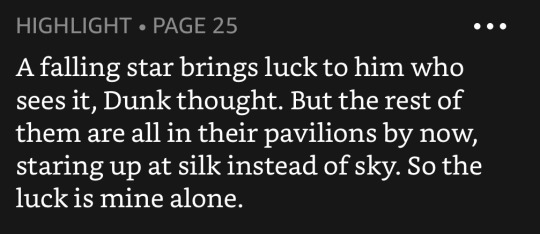
Something something the wealthy huddle beneath lavish roofs and tents and leave the poor to sleep in the rain and mud, but the wealthy have created for themselves gilded cages while the poor can watch the stars fall and claim the gift of luck that comes with it. Thanks George I eat stuff like this up like I’m a starving man.

Feel like we need to mention a dragon dream if we’re discussing Dunk and Egg. My favourite dragon dream in the D&E series. Everything about it is correct: Dunk will be a Kingsguard, he’ll be famed throughout the land, he’ll live for nothing but to serve his King. Though Daemon gets one big thing wrong and that’s that he is not going to be King. Second hand embarrassment. As Bloodraven put it, “The fool just got the colour wrong.” Literally Daemon’s entire character. Spitting facts but he can’t tell red from black.
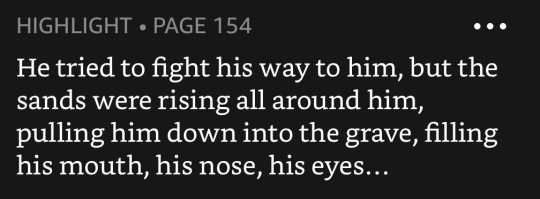
Defending myself by saying this isn’t a dragon dream. Uhhh so! King Aegon V was killed in a massive fire that burned down Summerhall on the night Rhaegar was born. Duncan the Tall, the Lord Commander, died trying to save both King Aegon and the other party guests from the fire. In this scene, Dunk dreams that he’s digging a grave and people, dead or alive, are appearing in it and speaking to him. The last to appear is Egg, who is buried in the sand even though Dunk tries to pull him out. Dunk falls into the grave and suffocates in the sand. It’s obviously supposed to represent the smoke at the fire of Summerhall. Literally wtf George?

The context is pissing contests by the way. Ignore the pissing part there’s a metaphor there I promise. Dunk is super interesting to me because his raising of Egg makes Egg the small-folk loving King that later rules Westeros. Dunk is wise in his life experience, yet he knows nothing of the struggle of women in both noble and peasant settings. Rohanne let’s him know just how difficult it is for a woman to claim any power or influence in Westeros, using the metaphor of a pissing contest, that classic male bonding activity (a woman needs to piss twice as hard).
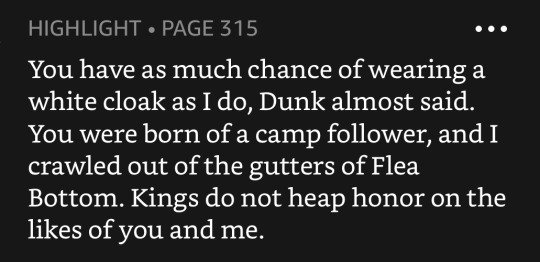
This does a really good job of putting into perspective how notable Aegon’s kingship was. “Kings do not heap honour on the likes of you and me,” yet King Aegon V named Dunk his Lord Commander and solidified Dunk’s place as a legendary knight. By ASOIAF, Dunk is spoken about admirably. Another King might not have ever given a man like Dunk the opportunity, but Aegon did.
Asoiaf (shorter because I feel like these have been talked about way more):

Daenerys Targaryen:
Makes me tear up. I feel like it’s obvious why. Also after this she tells Jorah that the people will not hurt her, for she is their mother. And then she rides her Silver throughout the crowd while laughing because she’s so happy and in love with the world!!! This is probably one of the only quotes here that isn’t going to be miserable.
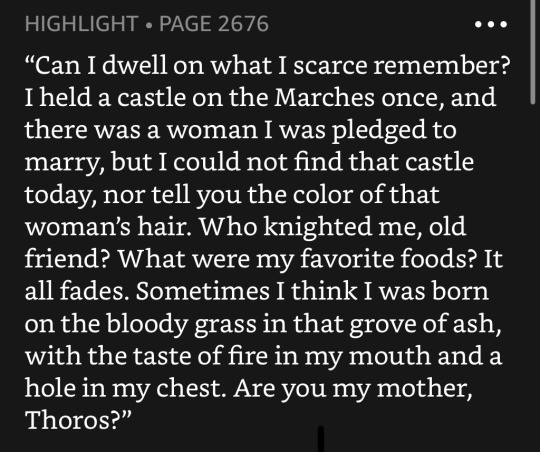
Beric Dondarrion:
“Are you my mother, Thoros?” propaganda I think about this quote so much. Beric and Thoros aren’t even on my top ten list but their conversations and dynamic is absolutely heartbreaking. Beric omg how you rot my brain.
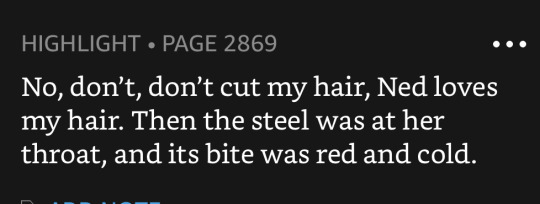
Catelyn Tully:
Not “Ned loved.” Instead, “Ned loves.” Because perhaps in her grief and panic, she forgot her husband had even died. I’m dead.
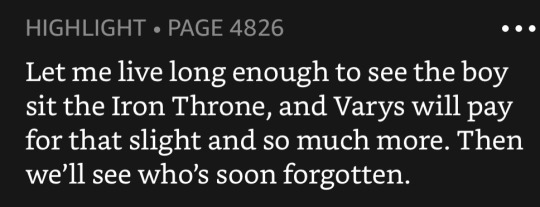
Jon Connington:
He’s so doomed. He’s so bitter and angry. He loves his son so much and that’s exactly why he’s so doomed. Because he refuses to give his son anything but the best, even though the best is going to kill them both.

Maester Aemon Targaryen:
I am a loyal Egg girl so this killed me nine different times :)
11 notes
·
View notes